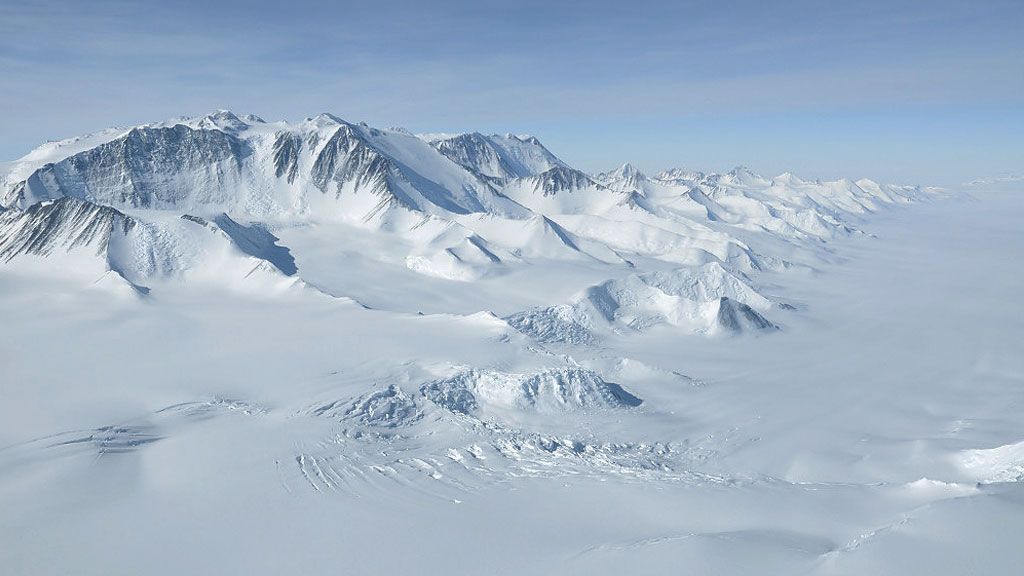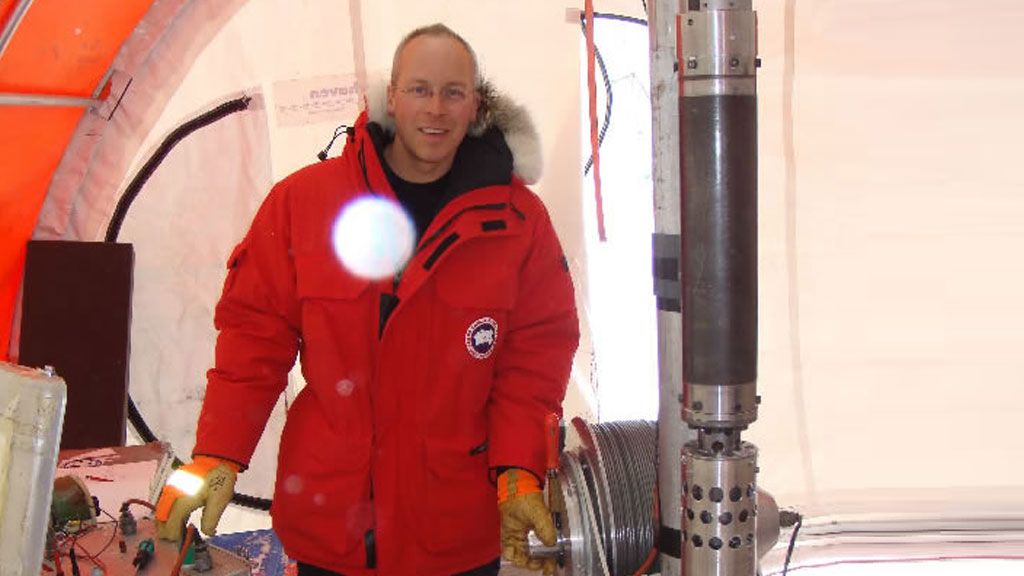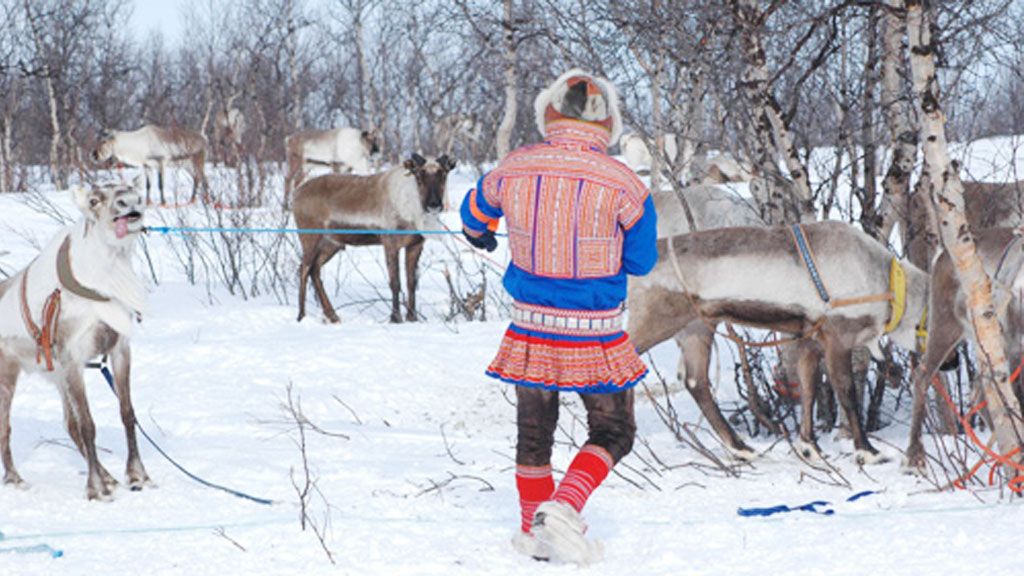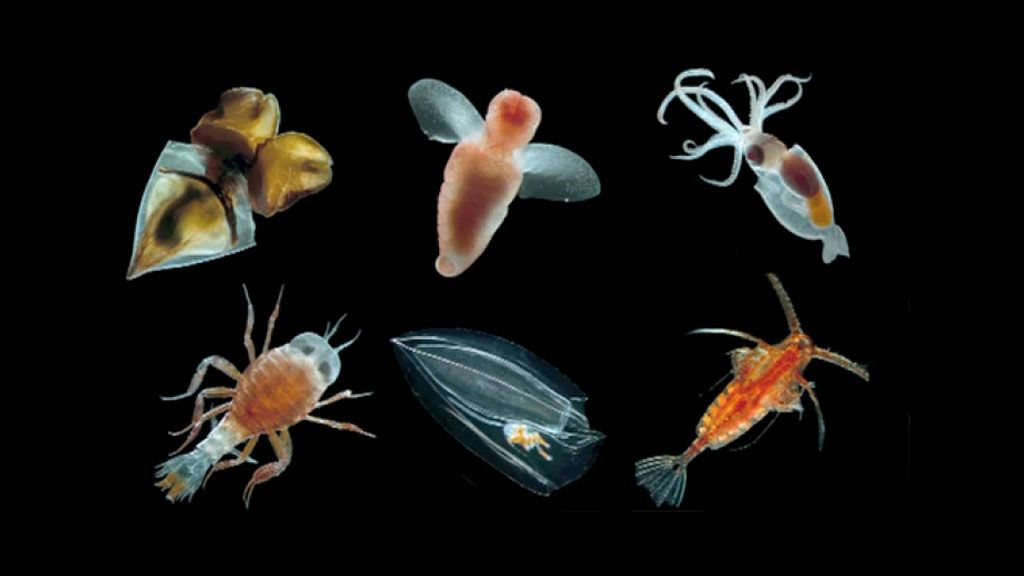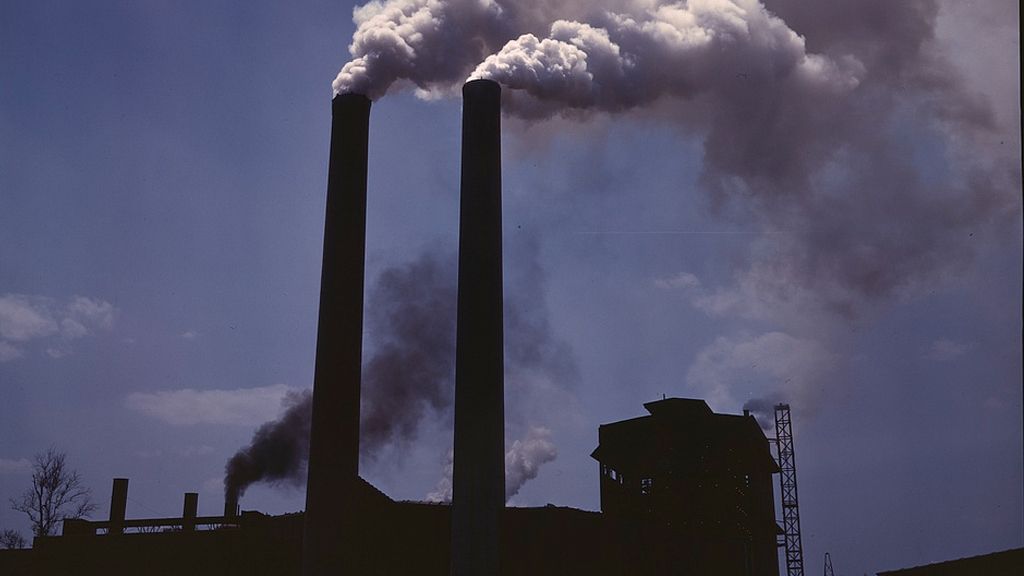Taking stock of climate change from a polar perspective
The Ellsworth Mountain Range peeks above the surface of the kilometres-thick ice sheet in Antarctica
© British Antarctic Survey
On the eve of his retirement as Director of the UK's British Antarctic Survey (BAS), SciencePoles interviewed Professor Chris Rapley about climate change from a polar research perspective. The interview also touched on broader issues, such as the societal decisions that now lie before us.
What in your view are the most pressing questions that still need to be answered relating to the Polar Regions and global climate change?
For me it is the ability to say with any confidence, how much and how quickly the ice from the great ice sheets (Greenland and the Antarctic) will melt and slide into the ocean.
In 2005, with key logistical support of the US National Science Foundation Polar Programme, BAS and the University of Texas carried out a radio echo sounding survey of about 30% of West Antarctica. And now we have this wonderful map of the underside of the ice sheet. This has allowed Dr David Vaughan and others to estimate that if the discharge from the Amundsen Sea Embayment area continued until it had drained all of the ice that it had access to, sea level would rise by one and a half meters. But what we don't know is whether that discharge will be maintained, or whether it will peter out. We don't understand the ice dynamics sufficiently well, and at present, the numerical models don't have the right physics in them. For example, they don't have the slippery sliding mechanisms, or the sort of juddering motion that we know takes place.
So for me that is the trillion dollar question. Of course, there other key questions, particularly in the North, of what will be the effect of the reduced sea ice cover on the climate system, the atmospheric circulation, and the ocean circulation. I don't mean to say that these aren't important questions, but if you ask me what is question number one, this would have to be the one.
And you are addressing it at BAS?
We're trying very hard. The number of individuals worldwide who are capable of addressing this numerical modelling issue is relatively small, but we've got a very strong team and that is one of their priorities over the next few years. And of course there will be a strong international collaboration to address this question during the International Polar Year (IPY) 2007-08.
Some findings have recently been published about the surprising amount of surface melting in West Antarctica in the summer of 2005. What does this signify?
First of all, it was a huge surprise, and a bit shocking, because the assumption was that that region of Antarctica was too cold to get surface melting. Looking at the ten years of data at our disposal, this was a very unusual event, but the data record is still too short to know exactly how unusual.
When you get surface melting, if there is enough flowing water, it finds its way down cracks to underneath the ice, where it lubricates the flow and allows the ice to slide much more freely than if it was frozen to the bedrock. And that was the other surprise: That we have now found that there is a much more active network of under ice water flows in West Antarctica than we had appreciated previously. This has a potentially huge impact on the discharge of the ice. And in the context of sea level rise, it certainly doesn't help.
If you get significant surface melting, than that will accelerate the ice dynamic and flow. Not good news.
How significant are the latest findings about the decreasing ability of the Southern Ocean to serve as a carbon sink?
They are very significant.
Of course, here again, we always have to proclaim the caveats: These findings are based on a time series of 30 years, or timescales on which the Earth system has natural fluctuations and variations. We cannot be sure that we won't find the Southern Ocean kicking back and beginning to pull down more carbon dioxide. The paper that Marshall and others from BAS published last year attributed the strengthening of the westerly winds (that stir up the carbon dioxide rich cold waters which then release their carbon dioxide) to a combination of the human-induced ozone hole and global warming. And so if that attribution is correct, than you might see a little bit of alleviation as the ozone hole gradually heals. But I think that will be more than compensated by the effect of the increase in global warming.
The concern is that up to the present, humans have emitted about 500 gigatons of carbon (320 gigatons from burning fossil fuels and 180 from changing the land surface), and if we want to stay below the threshold of what people see as dangerous climate change we are only allowed to use as much again, (or another 500 gigatons). The projection is that "business as usual" will take us from the current 7 gigatons per year, to 15 gigatons by 2050. But we have to be emitting at a much lower level. Some people argue that level should be about 2 gigatons a year, others say less, but if the land biosphere and ocean weaken as sinks, than we will have to take that level down even further.
More worryingly still, if the oceans become sources of carbon, as some of the prediction suggests, then we will have to sequester a net flux of carbon out of the atmosphere. So the fact that the ocean is showing signs of weakening already is very serious. And if it is sustained, it's very bad news, because it means that the task is even harder than we had thought, and it's hard enough already.
Are you concerned about major tipping points and runaway feedback loops, or do you consider these mere doomsday mongering?
If you model any complex system and connect together a whole load of compartments in a complex set of non-linear ways, at some point incremental change in one part of the system will lead to a major reorganization of the whole system.
We know that the climate system has done it in the past and is capable of doing it again, so in principle the answer is 'yes'. But I've got no idea as whether we are near any of those tipping points or not. I don't think anyone has an answer to that yet. It's something that certainly needs to be pursued.
Some concerns have been raised about the limited coverage of Antarctica in the recent IPCC 4th Assessment Working Group I report. Can you comment on this?
I think the IPCC does a fantastic job, but what they are trying to achieve is absolute rigor, so that what they do say cannot be undermined (although people still obviously do try). That means that it is an inherently conservative process, and also a slow process.
So there are really two factors at play here. First of all they can only assess the published literature up to the given date at which they draw their shutters down, and as we have seen, in the last year alone, a huge amount more information has emerged about Antarctica. Secondly, the temperature measurements in Antarctica are intermittent enough, and short enough in duration, that they decided that they were not of the same quality as data obtained from other regions of the world. This is why they essentially set the Antarctic aside, and largely didn't comment on it on the basis that the degree of certainty, robustness and rigour was not the same as that of the rest of the data that they were publishing.
What's more, in a slightly disappointing way, they lumped it all together and used an unfortunate phrase that seemed to dismiss the Antarctic as the place where little change was apparent. I don't think that is quite what they meant, but certainly in the executive summary, the impression was given that the Antarctic was a bystander in the context of climate change. Obviously, on the Peninsula and on West Antarctica, that is absolutely not the case. And indeed, overall we see all sorts of things going on that are vitally important.
About a year ago, you wrote a piece on the BBC News website about overpopulation. Do you still regard that as one of the main challenges facing the planet?
Yes, I do. And the issue hasn't really got easier in the meantime. People still don't want to talk about it. The technical solutions to reducing our dependence on carbon are all fine and necessary, but you don't see people looking at the social side of things: Rationing, family planning, etc.
Do you feel that the general public is becoming more aware of the impacts of climate change on the Earth system? At which point does communication need to move beyond impacts and towards solutions?
This is a very tricky area because we are sometimes accused of being alarmist, or of having very base motivations in trying to raise awareness, with some people saying that it is simply to sustain budgets. And of course it does sustain budgets, so it can be very difficult to unravel what is justified and what is alarmist. But to me being alarmist means that you raise unnecessary fear, whereas I think that climate change is serious enough for people to take it very seriously, although without leading to paralysis. We certainly don't want that.
But in the end, if we really are going to de-carbonize modern society to the point where the human race is emitting less than two gigatons of carbon equivalent per year, that is going to require a massive effort: One that will change the world. And the political will to work on that is still not guaranteed.
A couple of months ago I worked with Al Gore. One of the things I got out of it was his way of thinking about these issues, and the psychology behind them. It has become apparent that evidence presented raw has a tendency to overdraw the hope budget, and so we must be extremely careful in this area.
With initiatives like the International Polar Year and the work we are doing here at BAS, what we are trying to do is to better understand the system so that humans are in a position where they can manage their affairs and the planet better. And although the challenge looks pretty daunting, there have been so many examples in human history where, once it has been recognized that tough things need to be done, people have rallied and been very successful at doing it.
So that has to be the positive message: We are all trying to make the future better than it would otherwise be. Knowledge and evidence help us do that. And we have to be careful not to make people so complacent that they don't do anything, or so worried that they just paralyze themselves. We have to find that middle path. The challenge is to "manage the unavoidable, and avoid the unmanageable".
Listening to you speak, I can't imagine how you will not be involved in this effort after you retire as Director of BAS.
(Laughter) I have not yet bought any deck chairs!

Chris Rapley
Chris Rapley is curently Professor of Climate Science in the Deptartment of Earth Sciences at University College London (UCL). He was Executive Director of the International Geosphere-Biosphere Programme (IGBP) from 1994 to 1998. He then served as Director of the British Antarctic Survey (BAS) from 1998 to 2007 before becoming Director of the UK's Science Museum from 2007 to 2010. He was awarded the Edinburgh Science Medal in 2008, and was appointed Chair of the London Climate Change Partnership in 2013.
Read More
-
East Antarctica’s vulnerability to climate change and the quest for the oldest ice
The IPY EALÁT project: studying how reindeer herders adapt to climate change in the Arctic
Investigating Antarctic marine biodiversity and how it responds to climate change
Black carbon playing major role in Arctic climate change

